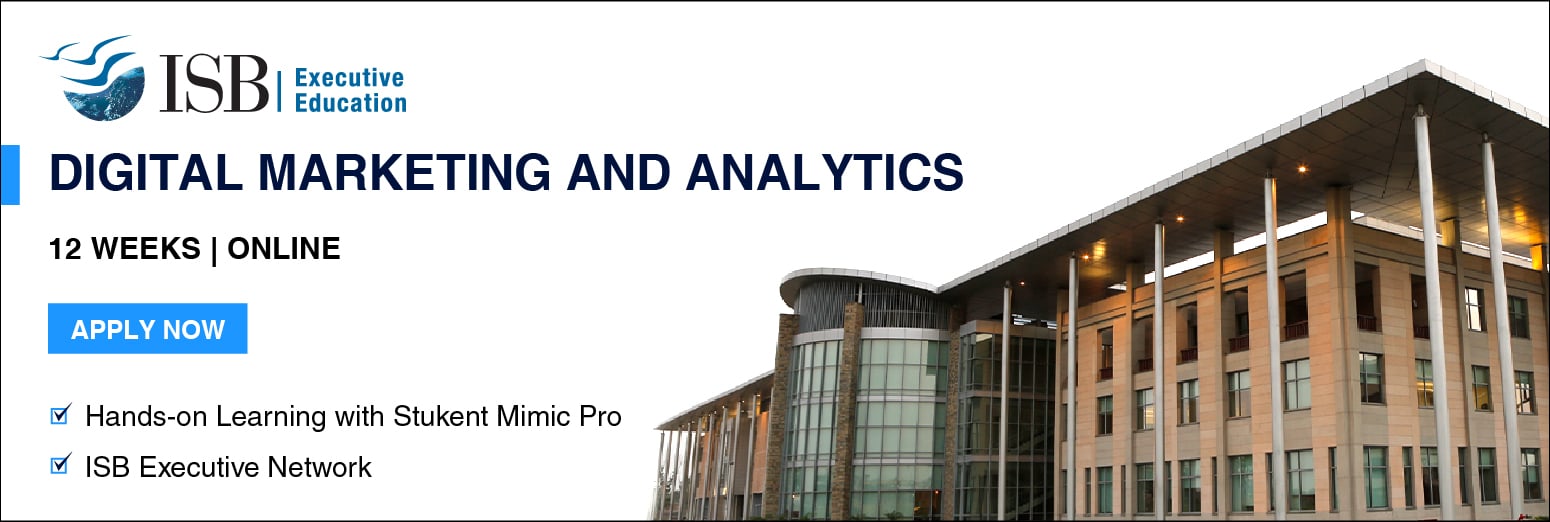Top 7 Fundamentals of Digital Marketing Every Marketer Should Know in 2023

The global digital advertising and marketing industry will reach $786.2 billion by 2026. In addition, statistics say currently, there are 167,000+ digital marketing job openings in the U.S. alone. With every business embracing digital marketing techniques to expand its footprint, it is the ideal time for aspiring professionals to grasp and hone in-demand digital marketing skills and establish a lucrative career. In this article, let’s outline the fundamentals of digital marketing to provide professionals with the essential knowledge needed to stay at the top of this booming field!
What is Digital Marketing and Why it’s Important
Digital marketing refers to the process of promoting and advertising a brand’s products and services using digital channels such as social media, websites, and email. Marketers can drive impactful digital marketing campaigns using innovative strategies, such as email marketing, pay-per-click, social media marketing, and affiliate marketing, which enable them to create brand awareness and reach the target audience.
Before understanding the fundamentals of digital marketing, let’s look at some of the reasons why digital marketing is booming:
- Wider Audience: Traditional marketing tactics are usually limited to a specific demographic. In fact, digital marketing enables marketers to target a wider audience and promote a business on a global scale.
- Compete with Bigger Players: By targeting a wider audience, digital marketing techniques enable small businesses to expand their market outreach and provide the chance to compete with bigger market players.
- Reach Potential Customers: Relying only on traditional marketing tactics, such as billboards and print and newspaper ads, makes it challenging for brands to reach potential customers. However, digital marketing makes it easy to identify and reach the target audience across all digital channels and drive successful campaign outcomes.
- Track Campaign Performance: Traditional marketing campaign performance is hard to track. It is difficult to determine how many people see a specific billboard and ultimately make the purchase. In contrast, tracking key campaign metrics such as social media presence, web traffic, and activity with relevant tools is possible with digital marketing.
- High Return on Investment (ROI): According to Litmus, email marketing ROI is 36x. In essence, this means for every $1 a brand spends on email marketing, they receive $36 in return. Hence, companies are investing in digital marketing opportunities to take their businesses to the next level.
Types of Digital Marketing
Marketers can yield the best results by developing a well-rounded marketing strategy that includes promoting a brand using various types of digital marketing techniques. Here are the top three types of affordable digital marketing methodologies that produce high conversion rates for businesses.
1. Search Engine Optimization (SEO)
Search engine optimization is the strategy of producing content in a way to make search engines like Google rank the webpage high on the search engine results page (SERP). Google employs algorithms to determine how relevant the webpage is to the user’s search terms. Since these algorithms are continuously updated, SEO tactics must be frequently modified to remain effective.
2. Content Marketing
Content marketing refers to informative, valuable content such as blog posts, how-to videos, and other educational resources. This type of marketing helps businesses interact with their audience and respond to their demand and queries. It can also help in generating leads and closing sales.
3. Social Media Marketing
In this case, social media platforms are used as digital marketing mediums. To reach new audiences, businesses can adopt an online advertising strategy and purchase advertisements on social sites. Alternatively, to keep it affordable, they can build a company profile and create social media posts to promote new items, deals, and freshly published content.
ALSO READ: How to Choose the Best Digital Marketing Course for Working Professionals
Digital Marketing Channels and Tactics
Digital marketing channels are the digital media/platforms marketers use to deliver digital marketing assets. These digital channels include email, websites, social media, live chat, and video chat.
On the other hand, digital marketing tactics are methods that marketers use to optimize and deliver their marketing efforts using a combination of the above digital channels. Some common digital marketing tactics include writing blog posts, sending tweets, responding to emails, reaching out to influencers, and repurposing content.
What are the Fundamentals of Digital Marketing?
Digital marketing involves many fundamental concepts you should master to implement the most effective marketing practices and run successful campaigns. Let us explore some of the most common ones in this section:
Understanding Your Customers
Developing a customer-centric marketing approach is crucial for designing effective digital campaigns and generating more business leads. Moreover, understanding your customers is the key to delivering products and services that are more aligned with their needs and demands to foster strong customer relationships and build a better brand image.
Measurement and Metrics
Digital marketing metrics are the Key Performance Indicators (KPIs) that marketers use to track and measure the performance of a digital marketing campaign. Some of these KPIs employed to measure a digital strategy include total website traffic, inbound links, click-through rates, cost per acquisition, cost per conversion, net promoter score, and engagement rates.
Conversion-Rate Optimization
Increasing the percentage of conversions from a website or mobile app is known as Conversion Rate Optimization (CRO). Also, it involves marketers generating ideas for new features/improving the existing ones on a website or app and then testing those hypotheses using A/B and multivariate testing methods to confirm their effectiveness.
Organic Channels
Digital marketing using organic channels refers to all the content posted on social media (images, videos, blog posts) without a paid subscription. Marketers can leverage these free-of-cost channels to build a customer base and engage with them regularly. Unlike paid media, this long-term strategy may not yield immediate results but helps build brand awareness and reputation.
Paid Channels
Any marketing channels where businesses need to pay money to get featured online are called paid channels. Some examples of paid channels include online advertising (Facebook/Instagram Ads), Google AdWords, YouTube video promotion, and influencer marketing. What all of these paid channels have in common is that they can help businesses speed up growth to a great extent by delivering immediate results.
Email Marketing
Email marketing is an effective way to communicate with existing and potential customers. It involves targeting an audience with generic emails to drive traffic to the website and increase conversion rates. In fact, most email marketing campaigns constitute emails that inform recipients of fresh offers and discounts to capture their interest. However, email marketing tools (such as Mailchimp) help generate emails and send them to a list of potential leads to simplify a marketer’s job.
Affiliate Marketing
Affiliate marketing involves hiring a third party to promote a product and paying them a commission on every sale. The affiliate can be an individual or an entity. The affiliate advertises the product (good or service) using any social platform, such as a blog or a YouTube video. When a buyer clicks on the affiliate link for the product and subsequently purchases it, the affiliate gets compensated for it through commission.
Referral Marketing
Referral marketing is a marketing strategy where a company rewards its current customers for successfully bringing new customers (family, friends, and other contacts) into the business. This is a tactic that makes use of recommendations and word of mouth to grow the customer base of a business. Some well-known companies successfully leveraging referral-based marketing schemes include Dropbox, Tesla, Airbnb, and Uber.
ALSO READ: What are the Top Skills Required for Remote Digital Marketing Jobs?
Learning, the Emeritus Way
If you want to learn the fundamentals of digital marketing, you can dive deeper into this field. And build a strong career with Emeritus. Enroll in our top-rated online digital marketing courses in association with renowned global universities to master the in-demand, industry-specific skills and land your dream job!
By Rupam Deb
Write to us at content@emeritus.org








